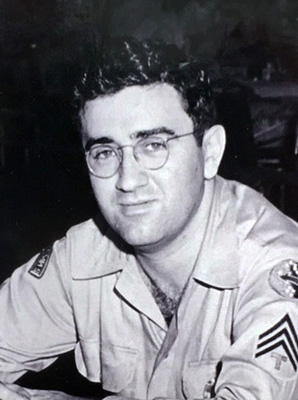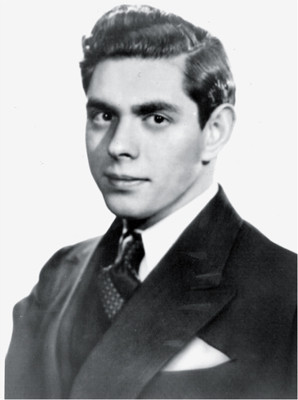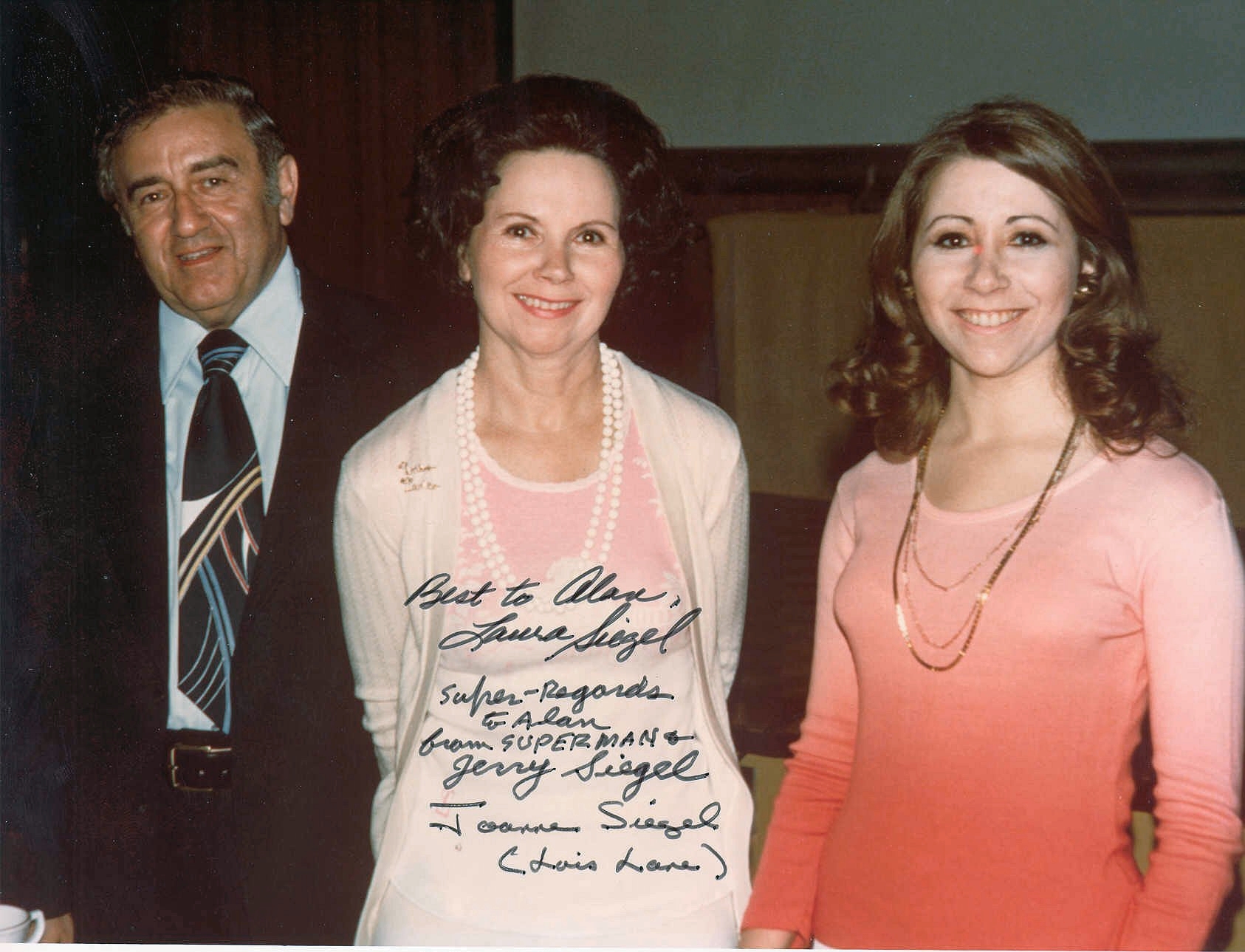Background
DC Comics corporate history
National Allied Publications was founded in 1934 byEstate of Jerome Siegel
 * Jerome Siegel (Oct 17, 1914 – Jan 28, 1996) — Writer, co-creator of Superman
* Michael Siegel (Jan 27, 1944 – Jan 17, 2006) — Son of Jerome and Bella Siegel (Jerome's first wife, m. 1939 and div. Oct 1948). Not to be confused with the father of Jerome, also named Michael.
*
* Jerome Siegel (Oct 17, 1914 – Jan 28, 1996) — Writer, co-creator of Superman
* Michael Siegel (Jan 27, 1944 – Jan 17, 2006) — Son of Jerome and Bella Siegel (Jerome's first wife, m. 1939 and div. Oct 1948). Not to be confused with the father of Jerome, also named Michael.
* Estate of Joseph Shuster
 *
* Siegel and Shuster's employment at DC Comics (1935–1947)
In 1933, writer Jerry Siegel and artist Joe Shuster conceived the fictional comic strip character1947–1948: Siegel and Shuster sue for ownership of Superman and Superboy
In 1947, Siegel and Shuster sued National Comics Publications for the rights to both Superman and Superboy and a "just share" of all profits that National and its partners made off the character. The suit was filed with theRegarding the ownership of Superman
Siegel and Shuster argued that the March 1, 1938 contract in which they sold Superman to Detective Comics, Inc. should be voided because it lacked sufficientRegarding the ownership of Superboy
National argued that Superboy was aRegarding unpaid royalties
Siegel and Shuster argued that National had cheated them of their royalties from the radio adaptation of Superman and merchandising. Their December 1939 contract entitled them to 5% of the net proceeds from all commercial exploitation of Superman beyond books, magazines, and newspapers. They argued that National had understated the proceeds and did not allow Siegel and Shuster access to the accounting records. Judge Young agreed that there were irregularities and decided an official accounting of all proceeds made from Superman was appropriate.Conclusion
Judge Young concluded, in April 1948, that National owned Superman but Siegel owned Superboy. He ordered National to account before the court all proceeds made from Superman and Superboy. The parties instead chose to settle out-of-court. National paid Siegel and Shuster $94,013.16 ($ when adjusted for inflation) for the rights to both Superman and Superboy. On May 21, 1948, Young entered a final judgment which vacated his April judgment, and ruled that the copyrights to Superman and Superboy belonged to National Comics Publications, Inc.:1965–1974: Copyright-renewal applications and lawsuit
Under the Copyright Act of 1909, a copyright lasted 28 years. Near the end of this term, the original owners of the copyright could apply to have the copyright renewed for another 28 years, in which case the copyright would revert back to them. In April 1965, Siegel and Shuster applied to renew the copyright of Superman, and that June, National Periodical Publications filed its own renewal application. National kept publishing Superman stories and licensing Superman merchandise after April 18, 1966, the date the initial 28-year term ended. In 1969, Siegel and Shuster sued National Periodical Publications in United States District Court for the Southern District of New York over ownership of Superman.Jerome Siegel and Joe Shuster v. National Periodical Publications, Inc., Case No. 69 Civ 1429 (USDC SDNY 1969) The court found that in the 1947 final consent judgment, Siegel and Shuster had transferred "all their rights" to the Superman character to National, including the renewal term. This decision was based on the legal precedent set by ''Fred Fisher Music Co. v. M. Witmark & Sons'', in which the US Supreme Court ruled that an author could in writing convey his renewal rights in advance of their vesting. The court also ruled that Superman was a work made for hire, despite the fact that Siegel and Shuster had been developing the character long before they began employment at National. The court argued that Detective Comics had rejected Siegel and Shuster's earlier prototype of Superman and that the revised version that appeared in ''Action Comics'' #1 was made under the supervision of Detective Comics.Siegel and Shuster appeal to the Second Circuit
Siegel and Shuster appealed to the United States Court of Appeals for the Second Circuit.Jerome Siegel and Joseph Shuster, v. National Periodical Publications, Inc., et al., 508 F.2d 909 (2d Cir. 1974) The appeals court disagreed with the lower court's decision that Superman was a work made for hire. Nevertheless, they agreed that Siegel and Shuster had indeed transferred their renewal rights and thus were not entitled to the copyright for Superman.1975: Public relations campaign for comics creators
In 1975, Warner Bros. announced the production of a Superman film to be directed by Richard Donner. Siegel publicly condemned the project and drew attention to his poverty and the apathy of DC Comics. He found sympathizers such as Neal Adams and Jerry Robinson, who waged a public relations campaign for better treatment of comic creators in general. In order to avoid bad press, Warner Bros. agreed to give Siegel and Shuster a yearly stipend, medical benefits, and credit their names in all future Superman stories, in exchange for no longer contesting ownership of Superman. The stipend was initially $20,000 but rose over the years.1992: Shuster dies
Shuster died on July 30, 1992, and he willed control of his estate to his sister, Jean Shuster Peavy. On October 2, 1992, Jean Peavy and Frank Shuster (Joe Shuster's brother) signed an agreement with DC Comics wherein they re-granted DC all of Joe Shuster's rights in exchange for a $25,000 annual stipend. The agreement read: In a 2010 lawsuit (see below), DC Comics claimed it and its affiliates had paid Shuster's heirs "close to $500,000" under this agreement.1996: Siegel dies
 When Siegel died on January 28, 1996, his estate passed to his widow
When Siegel died on January 28, 1996, his estate passed to his widow Marc Toberoff's offer to the Siegel and Shuster heirs
In 2001, Jean Peavy's son and Joe Shuster's nephew, Mark Warren Peary, contacted attorney and movie producer Marc Toberoff. On November 23, Peavy and Peary entered into a joint venture with Toberoff's production firm, Pacific Pictures. Toberoff then contacted the Siegel heirs, first through a phone call to their lawyer, Kevin Marks, on November 29, 2001. In negotiations the following year, Toberoff and his colleague Ari Emanuel offered the Siegel heirs $15 million for their half of rights to Superman. Toberoff's plan was to eventually produce a Superman movie after securing the rights to Superman from Siegel and Shuster's heirs. On September 21, 2002, the Siegel heirs fired Marks and later replaced him with Toberoff. On September 30, the Siegel heirs sent a letter to DC Comics stating that the negotiations were over. On November 8, 2002, Siegel's heirs filed termination notices for the Superboy character and claimed full ownership of the character. This termination would have taken effect on November 17, 2004. On August 27, 2004, DC Comics denied the notices. The Siegels then took DC Comics to court. Under the terms of the Copyright Act of 1976 in its original form, only the spouse, children, or grandchildren of a dead author could terminate a grant of copyright. This had prevented Shuster's sister and nephew from terminating Shuster's grant of his half of the copyright to Superman in the years following his death. In 1998, the Sonny Bono Copyright Term Extension Act modified the law to allow executors of estates to terminate. Under the original law, the window to serve the termination notice had ended in 1997, but the Sonny Bono Act also added a new subsection allowing the Shuster heirs to terminate 75 to 80 years after the copyright was first secured (with the usual two- to ten-year advance notice). The Shuster heirs could terminate their grant between 2013 and 2018, and the termination notice would have to be served between 2003 and 2016. On November 7, 2003, Peary served DC Comics with a notice of termination of Shuster's grant of the rights to Superman. He assigned Shuster's half of the rights to Superman to Pacific Pictures.2004–2016: Siegel's heirs sue
On October 8, 2004, Siegel's heirs filed suit in the United States District Court for the Central District of California to assert their claim they owned 50% of the copyright of Superman (the other half being Shuster's). On October 22, 2004, Siegel heirs filed another lawsuit in the same court over the rights to Superboy. They claimed 100% ownership of the Superboy character, as it was solely the creation of Siegel. Marc Toberoff represented the Siegels in both cases. The cases were assigned to Judge Ronald S.W. Lew on September 21, 2005. The following year, Lew took senior status and the cases were eventually reassigned to Judge Stephen G. Larson on October 30, 2006. In November 2009, Larson recused himself and the cases were reassigned to Judge Otis D. Wright II. Joanne Siegel died on February 12, 2011, before the cases were resolved. Her daughter, Laura Siegel Larson, took over the cases and became executor of the Siegel estate.Regarding Superman
DC Comics argued that the October 19, 2001 letter from the Siegels constituted a binding acceptance of DC's offer for the rights to Superman. However, Judge Larson found that the parties kept changing the terms of the agreement in subsequent correspondence, and thus never came to a stable agreement that the courts could enforce. Larson ruled that the Siegel heirs had regained half of the rights to ''Action Comics'' #1. In an August 12, 2009 supplement, Larson further elaborated his ruling.Regarding Superboy
DC Comics argued that Superboy was aDC Comics appeals to the Ninth Circuit
DC Comics appealed to the United States Court of Appeals for the Ninth Circuit. Arguments were held on November 5, 2012. The court reversed the District Court's grant of summary judgment, ruling that the October 19, 2001 letter from the Siegels (see above) constituted a legally binding acceptance of the October 16 oral agreement with DC Comics. The court ruled that, even though the agreement had not been finalized, the terms were "sufficiently definite that a court could enforce them". In a January 2013 memorandum, the presiding judges wrote: The appeals court remanded the case back to the District Court. In an April 18, 2013 judgment, Judge Wright denied all of the Siegel heirs' claims and ruled that the October 19, 2001 letter irrevocably gave DC Comics the rights to Superman and Superboy.Larson appeals to the Ninth Circuit
Laura Siegel Larson appealed Wright's April 2013 judgment to the Ninth Circuit. Larson argued that the October 2001 letter did not transfer the rights to Superboy because at the time of its writing the Siegel heirs had not yet terminated DC Comics' rights to Superboy. The appeals court rejected this argument. Larson claimed that her mother Joanne had rescinded the October 2001 letter and that DC Comics agreed to her decision. This was the first time that Larson raised this argument, and the appeals court refused to consider it because doing so would prejudice DC by forcing them to rework their defense from scratch.Effects of these cases
The television show ''2010–2013: DC sues the Shuster heirs
In 2010, DC Comics sued Toberoff, Joanne Siegel, Laura Siegel Larson, and Mark Warren Peary. Jean Peavy, incapacitated by a stroke in 2009, was not listed as a defendant in this case. Her son, Mark Warren Peary, was substitute executor for the Shuster estate. DC asked the court to invalidate and void the Shusters' termination notice and the agreements between Toberoff's firms and the heirs of Siegel and Shuster. The lawsuit was filed with the United States District Court for the Central District of California, and the case assigned to Judge Otis D. Wright II. The judge agreed with DC's argument that the 1992 agreement with Jean Peavy, the sole heir and executor to Shuster's estate, barred her and all other heirs from pursuing termination. The judge also ruled that the 1992 agreement superseded all prior agreements between Shuster and DC Comics, and as a post-1978 grant it is not subject to termination under § 304(d) of US copyright law. The judge also ruled that the transfer of rights to Pacific Pictures was illegal because it had been made before the effective date of termination of October 26, 2013. The Shuster heirs appealed to the Ninth Circuit, but the appeals court agreed with Wright's judgment.Future
The copyright to ''Action Comics'' #1 was in its renewal term on October 27, 1998 (the date the Copyright Term Extension Act became effective). This means that the copyright will expire 95 years after it was first secured, i.e. in 2033. Thus, barring new legislation, Superman as he is depicted in ''Action Comics'' #1 will become public domain in 2033, along with other story elements such as Lois Lane and the city of Metropolis. Some later developments of the character, such as his power of "heat vision" (introduced in a 1949 story), may not be available to unlicensed authors as they were introduced in works that will persist longer under copyright. Supporting characters such as Lana Lang, or locales such as the Fortress of Solitude, will also persist for longer in copyright.Cited court cases
Jerome Siegel and Joseph Shuster vs. National Comics Publications Inc. et al. (New York Supreme Court 1947)Plaintiff's complaint
November 21, 1947 opinion
April 12, 1948 Findings of Facts and Conclusions of Law
April 12, 1948 Interlocutory judgment
May 21, 1948 Final judgment
Jerome Siegel and Joe Shuster v. National Periodical Publications, Inc., Case No. 69 Civ 1429 (USDC SDNY 1969)
Plaintiffs' complaint
Final decision of the court (October 1973)
Jerome Siegel and Joseph Shuster v. National Periodical Publications, Inc., et al., 508 F.2d 909 (2d Cir. 1974)
Final decision of the court (December 1974)
Laura Siegel Larson et al. v. Warner Bros. Entertainment, Inc. et al., Case No. 2:04-cv-08400-ODW-RZ (USDC CDCA 2004)
Plaintiff's complaint
Judge Larson's March 26, 2008 ruling
August 2009 decision
Final judgment of Judge Wright (April 2013)
Laura Siegel Larson et al. v. Time Warner, Inc. et al., Case No. 2:04-cv-08776 (USDC CDCA 2004)
Plaintiff's complaint
Judge Lew's March 23, 2006 ruling
Ruling of Judge Larson (July 2007)
Final judgment of Judge Wright (April 2013)
Laura Siegel Larson v. Warner Bros. Entertainment, Inc. et al., Case Nos. 11-55863, 11-56034 (9th Cir. 2012).
Final decision (January 10, 2013)
DC Comics v. Pacific Pictures Corp. et al., Case No. CV 2:10-cv-03633 ODW (RZx) (USDC CDCA 2010)
Plaintiffs' complaint (May 2010)
October 2012 grant of summary judgment
DC Comics v. Pacific Pictures Corp. et al., Case No. 11-56934 (9th Cir. 2012)
Final decision (January 2013)
Larson v Warner Bros Entertainment et al., Case No. 13-56243 (9th Cir. 2013)
ruling of the court (February 2016)
Contracts, agreements, and other legal documents
December 1937 employment contract
US copyright law
Current US copyright law (Title 17 United States Code)
Footnotes
Bibliography
* * * * * {{cite book , last1=Tye , first1=Larry , title=Superman: The High-Flying History of America's Most Enduring Hero , date=12 June 2012 , publisher=Random House , location=New York , isbn=978-1-58836-918-5 , url=https://archive.org/details/supermanhighflyi00tyel_0/mode/2up , language=en